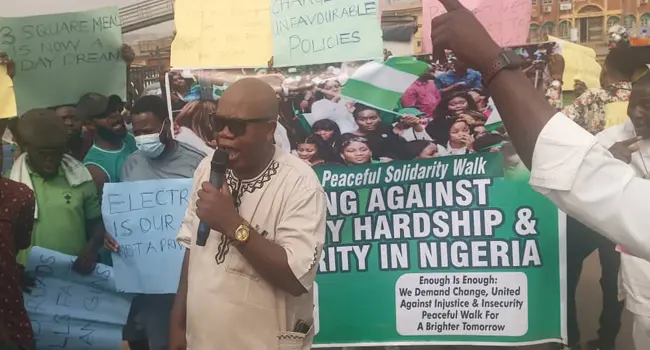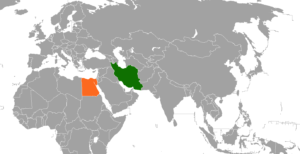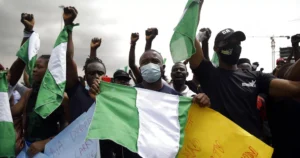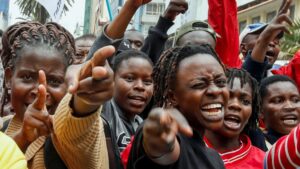In recent weeks, Nigeria has been on high alert as plans for nationwide protests have emerged, driven by widespread economic hardship and dissatisfaction with government policies. Scheduled to commence on August 1, 2024, these protests, organized primarily by youth groups, aim to address the escalating cost of living and demand political reforms. This article delves into the background of the protests, the economic context, government responses, and the potential implications for Nigeria’s future.
Background of the Protests
The upcoming protests are rooted in the severe economic challenges facing many Nigerians, exacerbated by recent government reforms. President Bola Ahmed Tinubu’s administration has implemented significant changes, including the removal of fuel subsidies and currency controls, which have led to skyrocketing inflation and a dramatic increase in the cost of essential goods. As a result, many citizens are struggling to afford basic necessities, leading to widespread discontent and calls for action.
The protests have been tagged with the slogan #EndBadGovernance, echoing sentiments from the previous #EndSARS movement that sought to address police brutality and systemic corruption. This new wave of activism reflects a growing frustration among young Nigerians, who feel that their voices are not being heard and that the government is failing to address their needs. With the planned protests spanning ten days, organizers aim to draw attention to the plight of citizens and demand accountability from their leaders.
Economic Context
Nigeria’s economy has faced significant turmoil in recent years, with inflation rates hitting a three-decade high of nearly 30% in January 2024. The removal of fuel subsidies has tripled petrol prices, further straining household budgets and leading to increased prices for food and other essentials. Reports indicate that many Nigerians have been forced to skip meals or reduce their intake of nutritious foods, such as meat and dairy products.
The economic crisis has pushed millions into poverty, with estimates suggesting that approximately 87 million Nigerians live below the poverty line. The World Bank has highlighted that Nigeria’s economic challenges stem from a combination of factors, including policy distortions, fiscal deficits, and external shocks like the COVID-19 pandemic. As the government attempts to implement reforms to stabilize the economy, the impact of these measures on the everyday lives of citizens has become a focal point for protest organizers.
Government Response
In anticipation of the protests, the Nigerian government has mobilized resources to prevent potential unrest. President Tinubu has engaged in a series of meetings with key stakeholders, including traditional leaders, governors, and security agencies, to address the concerns of citizens and discourage participation in the protests. The government has also rolled out food palliatives, distributing essential supplies to vulnerable populations in an effort to alleviate immediate hardships.
However, the government’s approach has been met with skepticism. Critics argue that the administration’s efforts to quell dissent through meetings and food distributions are insufficient to address the root causes of discontent. The Inspector-General of Police has issued warnings against protests that could lead to violence, emphasizing the need for law and order while simultaneously acknowledging the constitutional right to protest. This duality in messaging highlights the government’s struggle to balance maintaining order with respecting citizens’ rights to voice their grievances.
Public Sentiment and Reactions
Public sentiment surrounding the planned protests is mixed. While many citizens support the movement as a legitimate expression of frustration, others express concerns about potential violence and disruption. The memory of the #EndSARS protests, which resulted in significant loss of life and property, looms large in the minds of both protesters and government officials. Some community leaders and activists have urged restraint, advocating for peaceful demonstrations that focus on constructive dialogue rather than confrontation.
On the other hand, civil society organizations and human rights advocates emphasize the importance of protests as a tool for holding the government accountable. They argue that peaceful demonstrations are essential for fostering democratic engagement and prompting necessary reforms. The Social Democratic Party has publicly supported the protests, calling for a civil response from security agencies and urging citizens to participate in a peaceful manner.
Potential Implications for Nigeria’s Future
The upcoming protests in Nigeria represent a critical juncture for the nation. If the demonstrations proceed as planned, they could lead to significant political and social changes. The government’s response to the protests will be closely scrutinized, and how it handles dissent will have lasting implications for public trust and governance.
Moreover, the protests could serve as a catalyst for broader reforms, forcing the government to address the underlying issues contributing to economic hardship and social unrest. As citizens continue to mobilize and demand accountability, the potential for change in Nigeria’s political landscape grows. However, the risks of escalation and violence remain a concern, and the government must navigate this delicate situation with care.
Conclusion
As Nigeria braces for nationwide protests amid economic hardship, the situation remains fluid and complex. The planned demonstrations reflect a growing frustration among citizens, particularly the youth, who are demanding change and accountability from their leaders. While the government has taken steps to address concerns and prevent unrest, the effectiveness of these measures remains to be seen. The coming days will be pivotal in shaping Nigeria’s future, as the nation grapples with the challenges of governance, economic stability, and the rights of its citizens to protest.





